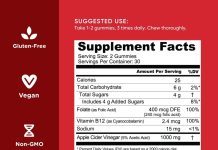Are you feeling frustrated with your weight loss progress hitting a plateau? It can be disheartening when you’re putting in the effort but not seeing the desired results. Don’t worry, we’ve got you covered! In this article, we will share effective strategies and practical tips to help you overcome weight loss plateaus and achieve your fitness goals. So, say goodbye to those stubborn plateaus and hello to a healthier, happier you!
Review contents
Understanding Weight Loss Plateaus
What is a weight loss plateau?
A weight loss plateau refers to a period of time during your weight loss journey when your progress stalls and you are no longer seeing the same results as before. Despite your efforts, the scale does not budge, which can be incredibly frustrating and demotivating. It is a common phenomenon that many people experience, but it is important to remember that it is not permanent and can be overcome with the right strategies.
Causes of weight loss plateaus
There can be several causes for weight loss plateaus. One of the main reasons is that your body adjusts to your new lifestyle and caloric deficit, which can slow down your metabolism. Additionally, as you lose weight, your body composition changes, and you may have less muscle mass, which can further decrease your metabolic rate. Other factors that contribute to weight loss plateaus include not being mindful of portion sizes, underestimating caloric intake, and not challenging your body with new exercises.
Importance of overcoming weight loss plateaus
Overcoming weight loss plateaus is crucial for both your physical and mental well-being. When you hit a plateau, it can be easy to become discouraged and lose motivation. By implementing appropriate strategies, you can break through the plateau and continue making progress towards your weight loss goals. Overcoming plateaus also prevents the frustration of feeling like you are putting in effort without seeing results, and it helps you maintain a positive mindset on your weight loss journey.
Reassessing Your Approach
Evaluate your current diet and exercise routine
When facing a weight loss plateau, it is essential to evaluate your current diet and exercise routine. Take a close look at what you are eating and drinking, and determine if there are any areas where you can improve. Are you consuming enough protein, fruits, and vegetables? Are you allowing yourself occasional treats, or is your diet too restrictive? Similarly, assess your exercise routine and see if you can incorporate different workouts or increase the intensity.
Tracking your calories and macros
One effective way to break through a weight loss plateau is to track your calories and macros. While it may seem like a tedious task, it provides valuable insights into your daily intake. Use a food diary or a mobile app to record everything you eat and drink. This will help you identify any areas where you may be consuming more calories than you realize. Pay attention to your macronutrient balance as well, ensuring you are getting adequate protein, healthy fats, and complex carbohydrates.
Adjusting your calorie intake
Once you have a clear picture of your calorie and macronutrient intake, consider adjusting your calorie intake. If you have been in a caloric deficit for an extended period, your body may have adapted to the reduced energy intake. Gradually decrease your calorie intake to create a new deficit, but be cautious not to restrict calories excessively. Consult with a healthcare professional or a registered dietitian to determine a sustainable and appropriate calorie range for your goals.
Evaluating your workout intensity and frequency
Breaking through a plateau often requires evaluating your workout intensity and frequency. If you consistently perform the same routine at the same intensity, your body may adapt to the exercise, leading to diminished results. Increase the intensity of your workouts by incorporating high-intensity interval training (HIIT) or adding resistance training to challenge your muscles in new ways. Additionally, reassess the frequency of your workouts and consider adding an extra day or two to keep your body guessing.
Breaking through the Plateau
Increasing your physical activity
To break through a weight loss plateau, consider increasing your physical activity. This can be achieved by increasing your daily step count, taking the stairs instead of the elevator, or incorporating more active hobbies into your routine. Small lifestyle changes like these can make a significant difference in your calorie expenditure and help you overcome the plateau.
Incorporating strength training
Incorporating strength training into your exercise routine is another effective way to break through a plateau. Building lean muscle not only increases your metabolic rate but also helps improve body composition. Add resistance exercises such as squats, lunges, and push-ups to your workouts. If you are new to strength training, consider working with a personal trainer or joining a strength training class to ensure proper form and technique.
Trying high-intensity interval training (HIIT)
High-intensity interval training (HIIT) is a form of exercise that alternates between short bursts of intense activity and periods of rest or low-intensity exercise. Including HIIT workouts in your routine can help boost your metabolism, increase calorie burn, and break through a weight loss plateau. Experiment with different HIIT exercises such as sprints, burpees, or jump squats to find what works best for you.
Shifting your focus to non-scale victories
Breaking through a plateau is not just about the number on the scale. It is also important to shift your focus to non-scale victories. Celebrate and appreciate the other positive changes happening in your body, such as increased energy levels, improved sleep quality, and enhanced mood. Take measurements of your body or try on old clothes to observe changes in your physique. This shift in mindset can help you stay motivated and continue making progress, even when the scale seems stuck.
Overcoming Plateaus with Nutrition
Reevaluating your meal plan
When faced with a weight loss plateau, reevaluating your meal plan is crucial. Look for areas where you can make healthier choices or cut back on unnecessary calories. Opt for whole, unprocessed foods that are nutrient-dense and provide satiety. Incorporate a variety of fruits and vegetables to ensure you are getting a wide range of vitamins and minerals. Listen to your body’s hunger and fullness cues, and practice mindful eating to prevent overeating.
Increasing your protein intake
Protein is a vital macronutrient when it comes to weight loss and breaking through plateaus. It helps keep you feeling full and satisfied, boosts your metabolism, and supports muscle growth and repair. Assess your protein intake and consider increasing it if necessary. Include lean sources of protein such as chicken, fish, tofu, and legumes in your meals. Protein shakes or bars can also be a convenient way to meet your daily protein needs.
Incorporating more fiber-rich foods
Fiber-rich foods are not only beneficial for digestive health but also aid in weight loss. They provide satiety, slow down digestion, and help regulate blood sugar levels. Increase your intake of fiber by incorporating whole grains, fruits, vegetables, and legumes into your meals. Aim for a variety of different-colored fruits and vegetables to ensure you are getting a wide range of nutrients.
Drinking enough water
Proper hydration is often overlooked but plays a crucial role in weight loss and overcoming plateaus. Drinking enough water helps boost your metabolism, suppresses appetite, and aids in digestion. Carry a reusable water bottle with you throughout the day and aim to drink at least 8 cups (64 ounces) of water daily. Additionally, opt for water instead of sugary beverages to minimize your overall calorie intake.
Watching your portion sizes
Portion control is another essential factor in overcoming plateaus. Even if you are eating healthy foods, consuming too much can hinder your progress. Be mindful of your portion sizes and try using smaller plates or bowls to visually trick your brain into feeling satisfied with less. Listen to your body’s hunger and fullness cues and eat until you are comfortably satisfied, not overly full.
Adding in occasional refeed days
Refeed days may be beneficial when trying to overcome plateaus. A refeed day refers to a planned day where you temporarily increase your calorie intake to maintenance or slightly above maintenance levels. This can help increase your metabolism and provide a psychological break from the constant restriction. However, it is important to approach refeed days mindfully and ensure they align with your overall goals and dietary plan.
Considering Other Factors
Managing stress levels
Stress can have a significant impact on weight loss plateaus. When you are stressed, your body releases cortisol, a hormone that can increase appetite and promote the storage of fat, particularly in the abdominal area. Find healthy ways to manage stress, such as practicing mindfulness techniques, engaging in hobbies, or seeking support from friends and family. Prioritizing stress management can help break through a weight loss plateau and promote overall well-being.
Prioritizing sleep
Adequate sleep is essential for weight loss and overall health. Lack of sleep can disrupt hormonal balance, increase hunger hormones, and decrease satiety hormones, leading to increased food cravings and a slowed metabolism. Aim for 7-9 hours of quality sleep each night. Establish a consistent bedtime routine, create a comfortable sleep environment, and limit exposure to screens before bed to promote better sleep.
Checking for hormonal imbalances
Hormonal imbalances, such as an underactive thyroid or polycystic ovary syndrome (PCOS), can contribute to weight loss plateaus. If you have been consistently following a healthy diet and exercise routine without seeing progress, it may be worth consulting with a healthcare professional to assess your hormone levels. They can perform appropriate tests and provide guidance on how to manage any hormonal imbalances that may be hindering your weight loss efforts.
Consulting a healthcare professional
If you have tried various strategies to overcome a weight loss plateau without success, consider consulting with a healthcare professional, such as a registered dietitian, nutritionist, or doctor. They can provide personalized guidance based on your unique circumstances, identify any underlying issues, and help create a tailored plan to break through the plateau. Remember, seeking professional help does not mean you have failed; it is a sign of proactively addressing your health and wellness.
Staying Motivated and Accountable
Setting realistic goals
Setting realistic goals is essential to maintain motivation and accountability on your weight loss journey. Break down your long-term goal into smaller, achievable milestones. Celebrating these smaller victories will keep you motivated and encourage continued progress. Avoid setting overly ambitious or unrealistic goals, as they can lead to frustration and disappointment.
Tracking your progress
Tracking your progress is an excellent way to stay motivated and accountable. Keep a record of your weight, measurements, and body composition changes. Take progress photos or journal your feelings and thoughts throughout your journey. Reflecting on your progress can help you see how far you have come, even during plateaus, and inspire you to keep pushing forward.
Seeking support from a workout buddy or online community
Finding support from others who are also on a weight loss journey can be incredibly beneficial. Having a workout buddy or joining an online community allows you to share experiences, seek advice, and motivate each other. Surrounding yourself with like-minded individuals who understand the challenges you face can help you stay motivated and accountable during plateaus.
Rewarding yourself for milestones
Acknowledging and rewarding yourself for reaching milestones is another way to stay motivated and accountable. Treat yourself to non-food rewards, such as a new workout outfit, a massage, or a weekend getaway. These rewards not only serve as motivation but also reinforce positive behaviors and create a positive association with your weight loss journey.
Maintaining a positive mindset
Lastly, maintaining a positive mindset is crucial for overcoming weight loss plateaus. It is normal to experience setbacks and plateaus along the way. Instead of getting discouraged, focus on the progress you have made and the healthy habits you have developed. Practice self-compassion and remind yourself that weight loss is a journey with ups and downs. Embrace the process, stay focused on your goals, and believe in yourself. With the right mindset and strategies, you can break through any plateau and continue progressing towards a healthier and happier version of yourself.
In conclusion, weight loss plateaus are a common hurdle many individuals face on their weight loss journey. However, by reassessing your approach, breaking through the plateau with various strategies, overcoming plateaus with nutrition, considering other factors, and staying motivated and accountable, you can overcome these challenges and continue towards your goals. Remember, weight loss is a journey, and overcoming plateaus is a part of that journey. Stay positive, stay focused, and keep striving for a healthier and happier life.



























